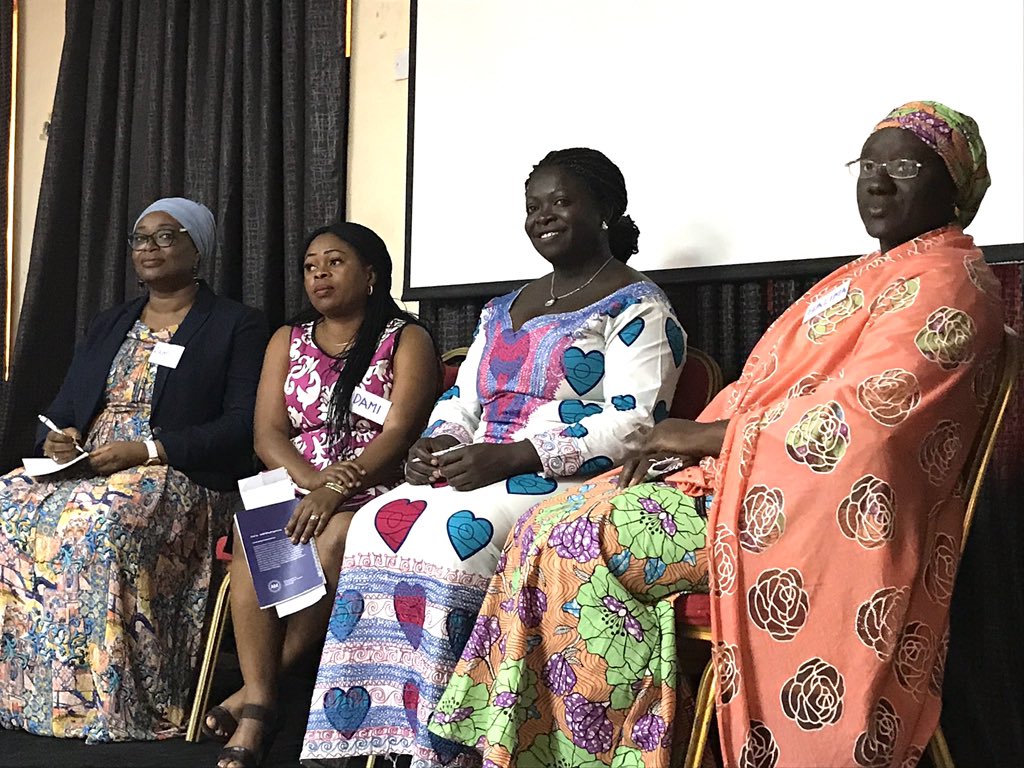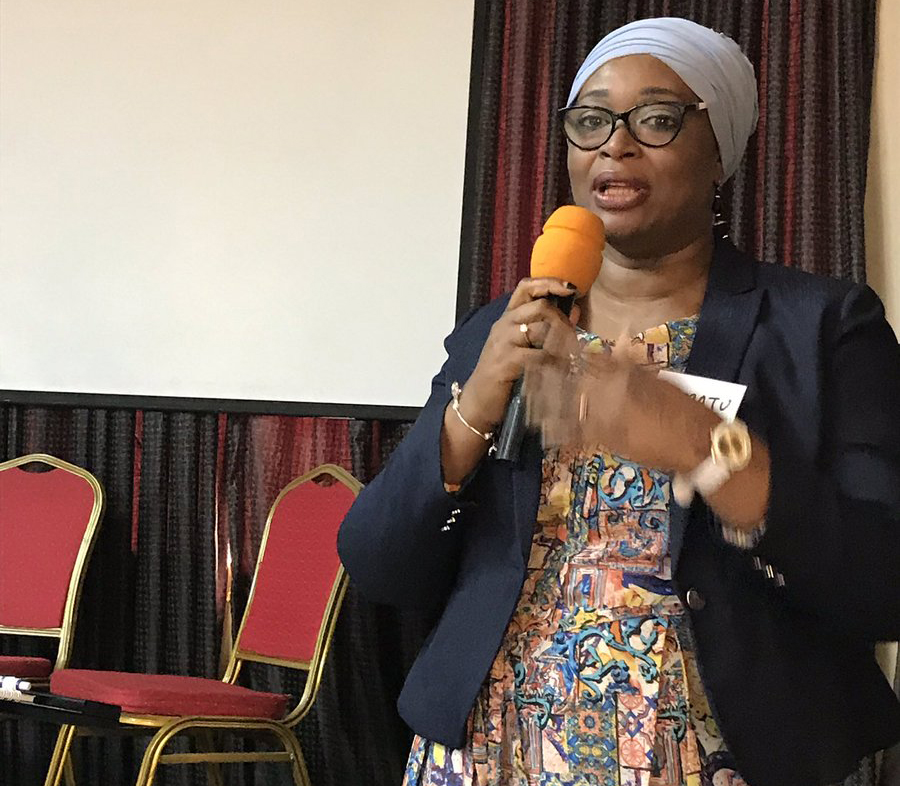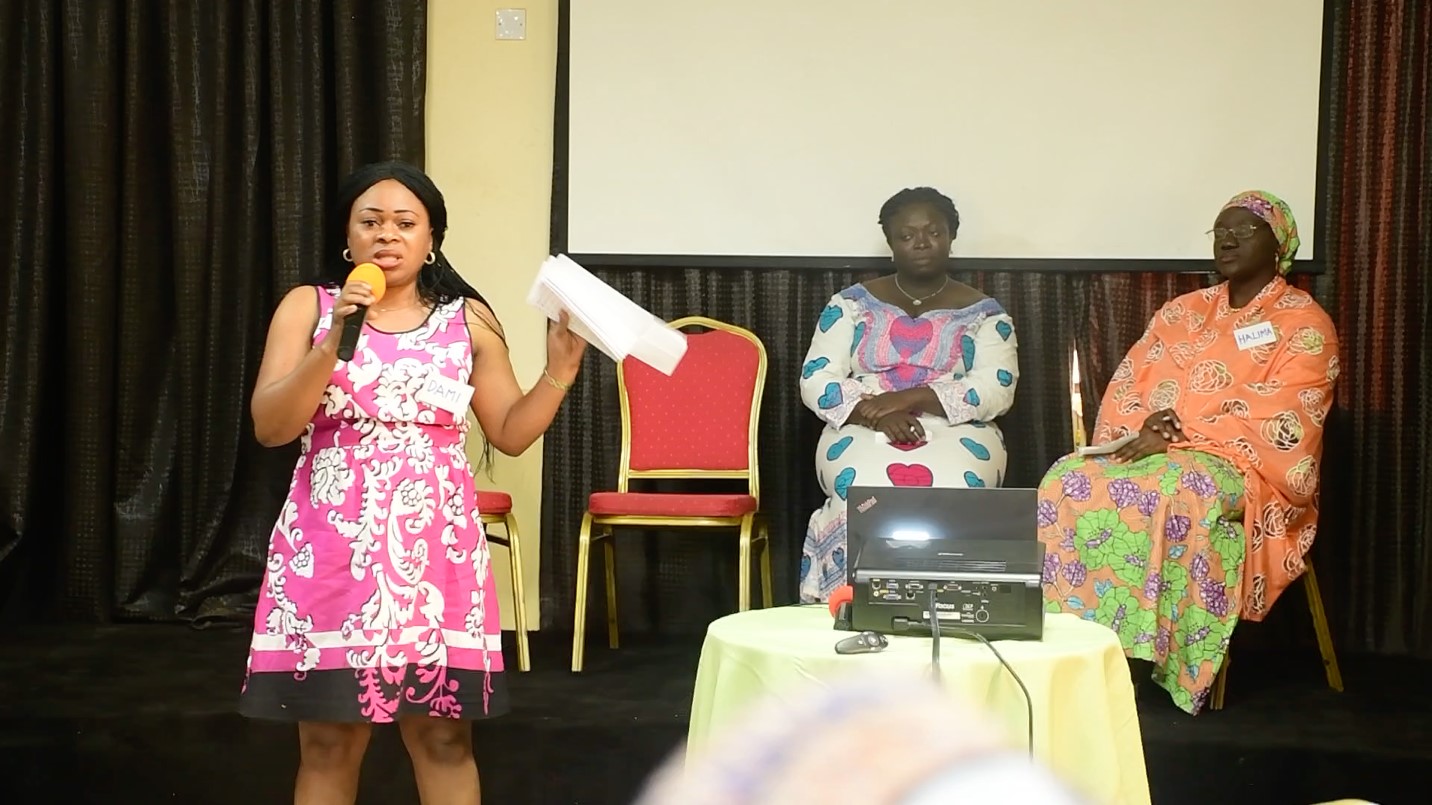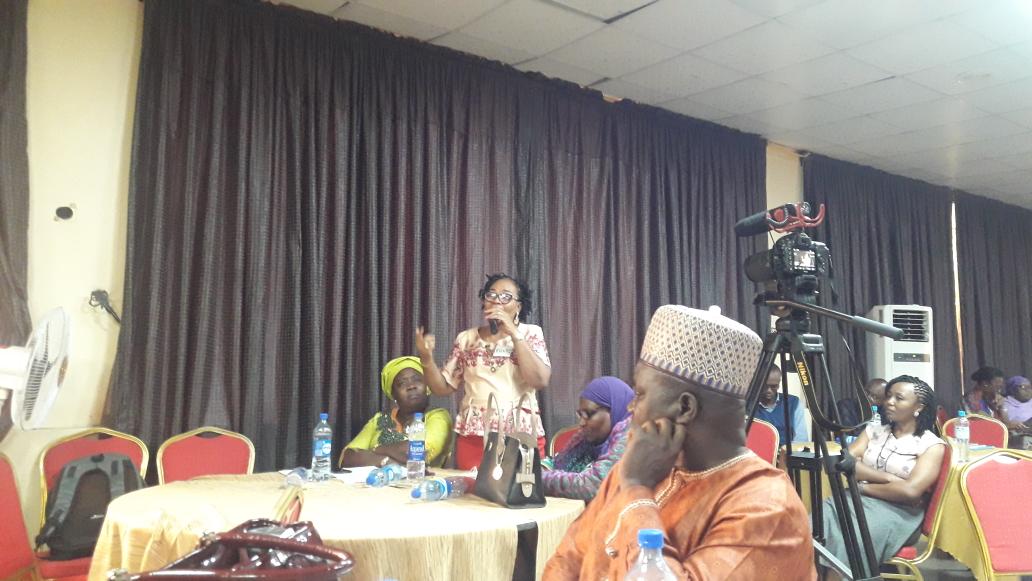Identifying gender barriers affecting access to family planning services
Women Deliver Satellite Event - April 30, Abuja, Nigeria

In the lead up to the Women Deliver conference in June, the SHOPS Plus team in Nigeria joined the global dialogue on gender equality, women’s empowerment, and the health, rights and well-being of women and girls by hosting a satellite event in Abuja on April 30.
The event, titled "Women: Our Grassroots Experience,” assembled stakeholders, experts, and policy makers from the country’s health sector and examined the conference’s theme “Power. Progress. Change.” Speakers addressed gender issues and how they affect family planning and reproductive health service delivery in Nigeria.
The satellite event featured four women, including three local health care providers:
- Ramatu Umar-Bako, a lawyer and gender specialist
- Halima Bello-Lawal, a consultant obstetrician and gynecologist and the first female medical director of Kwali General Hospital in the Federal Capital Territory
- Susan Luka, a community health extension worker (CHEW) working at a primary health center in Plateau State
- Damilola Kolapo, a nurse at Navy Medical Center in Kuje
Moderated by SHOPS Plus family planning technical director for Nigeria, Amina Aminu Dorayi, the discussion examined the definition of gender bias, provided insights on gender biases faced by women and girls in Nigeria, and identified ways in which the audience could participate in social change and dialogue. In addition, the panelists shared the challenges they face and how they overcome them.

Ramatu Umar-Bako – Lawyer and gender specialist
Umar-Bako provided a general overview of the gender biases faced by women and girls in Nigeria and how social change can be enacted. She talked about how gender roles are influenced by the media, environment, society, and family, and how they impact the way we socialize with peers and form relationships when we are children. According to Umar-Bako, gender influences our behavior and, as a result, it can also affect health. She believes that including gender in national and local policies and improving dialogue on gender rights are essential to making a positive change in households, communities, and society as a whole.
Halima Bello-Lawal - Doctor and SHOPS Plus family planning trainer
Bello-Lawal shared her experiences as a girl, wife, mother, and female doctor. She explained how she initially didn’t realize she was experiencing gender bias at different stages in her life—she thought that it was just the way women were supposed to be treated. It was not until Bello-Lawal participated in gender bias awareness exercises at SHOPS Plus trainings that she realized her experiences led to her also exhibiting gender biases when it came to providing family planning services in her facility. Since her training, she says she is now better informed and ensures that women and girls are given fair treatment in her general hospital.
Susan Luka - Community health extension worker
Luka talked about the gender bias she faced as a child in her household and how although her mother often silenced her, her father was her biggest advocate. Now as a provider and wife, she faces a different challenge. As one of two staff members at a remote health facility, Luka explained how she and her female colleague run week-long shifts with duties that include cleaning, providing services, and managing the facility. With the training she received from SHOPS Plus, Luka expanded the family planning services available at her facility. However, as a result of her increased workload, she struggles to find the balance between her work and role as a wife and mother. Fortunately, with the support of her father and husband, she is able to do her work and feels fulfilled.
Damilola Kolapo - Nurse at a Naval Medical Center

Kolapo shared her story about how she got married at a young age and had to move and re-start her career because her husband chose where they would reside. In her job, she sees many women who come in and want to use family planning but are not allowed to by their husbands, which often results in unplanned pregnancies. Kolapo says the SHOPS Plus family planning training taught her how to conduct constructive male engagement as part of family planning counseling and service delivery. Now with the support of her male supervisor, she organizes community meetings with male staff at the center and provides them with information on the benefits of family planning and the role they can play in supporting their wives’ access to these services. As a result, more women are accessing family planning services.
Making progress and enacting change

At the conclusion of the event the message was clear. Participants and panelists feel that laws are not enough, they need to be implemented and enforced. However, in order for the laws to be effective, gender awareness is necessary. By creating an education curriculum that includes gender issues and training health workers to identify and address gender bias, providers can begin to change the barriers that face women who seek family planning and reproductive health services at their local facilities. Key partners in this cause will be the media, religious and traditional leaders, and educational institutions, such as schools, because changing the status quo will not only take time and diligence but it will require a multisectoral approach that reinforces the messages at every stage and setting in an individual’s life.